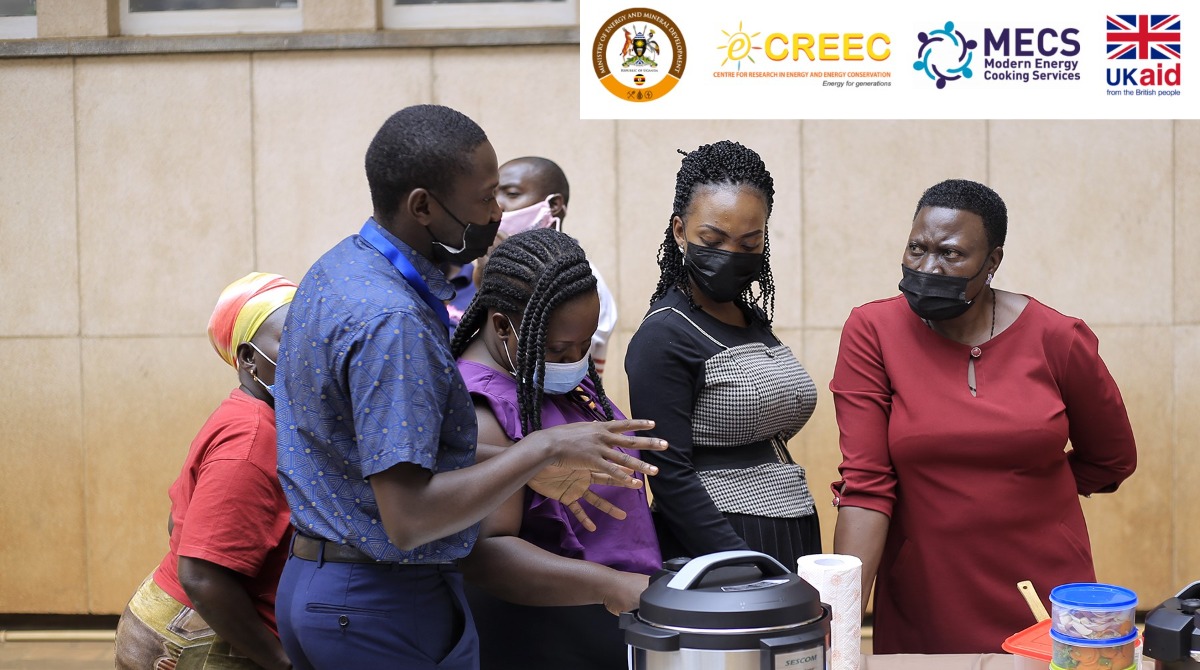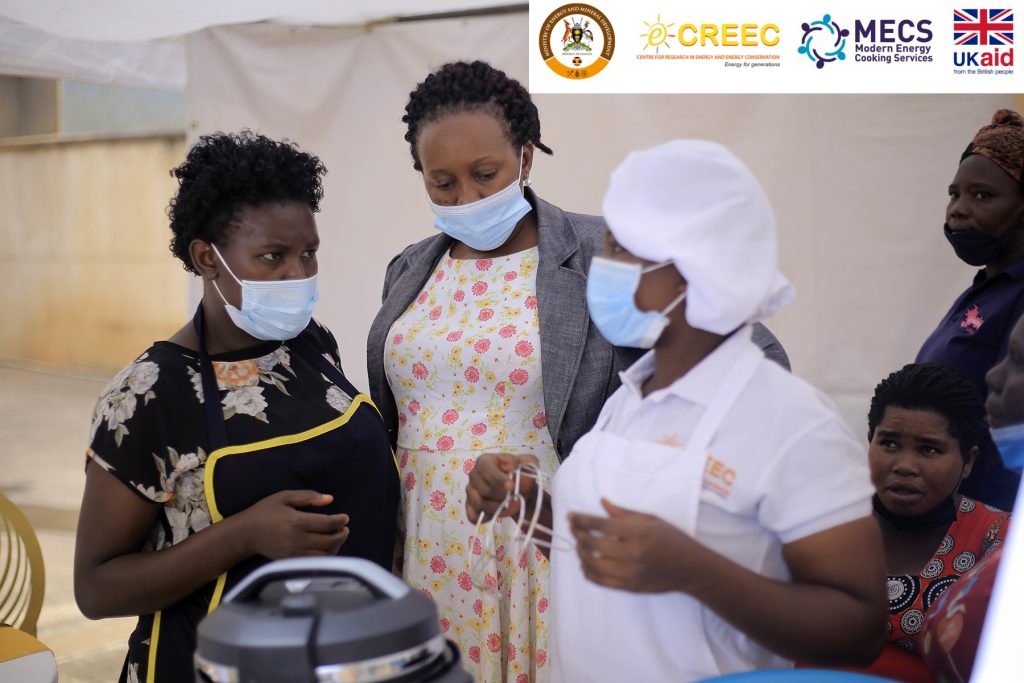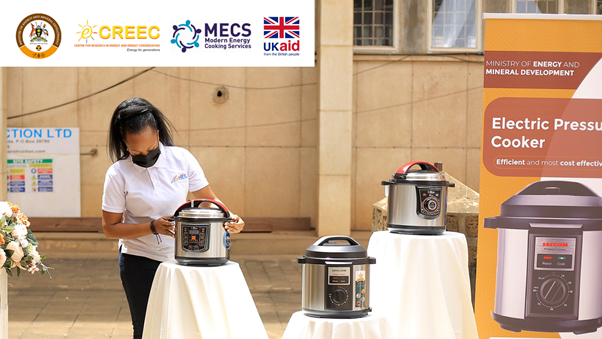
- Date
- 23rd February 2022
- Categories
By James Banaabe, Shukri Abdulkadir (Loughborough University) and Anna Clements (Gamos)
The MECS Uganda team joined forces with the Ugandan Ministry of Energy and Mineral Development and our partner, Makerere University’ Centre for Research in Energy and Energy Conservation (CREEC) to organise an electric cooking demonstration at the Ministry of Energy and Mineral Development Headquarters in Kampala on 10 February 2022. This event was the culmination of a longstanding collaboration between the three partners and other key stakeholders in the country to showcase that electric cooking with highly efficient electric pressure cookers (EPCs) is the least expensive and the most efficient option for majority of Ugandans. It brought together Government representatives, civil society, private sector and other key stakeholders with a key interest in clean cooking.
Cooking tariff to promote cheaper electric cooking cheap
The event was timely planned, as the Government recently introduced a ‘cooking tariff’ – a declining block tariff for domestic consumers to incentivise cooking with electricity. The new tariff offers a springboard to transform the way Ugandans cook. This comes on the heels of significant progress made over the last years in improving electrification rates in the country, with over 50% of the population now connected. Further, the installed generation capacity has doubled from 600 MW to 1200 MW, meaning that Uganda today produces an electricity surplus of almost double current demand, almost exclusively from renewable sources (92%). Electric cooking offers an opportunity for Umeme, the country’s main electricity distribution company, to stimulate demand for the electricity surplus. At the moment, majority of Ugandans use charcoal (21%) or firewood (73%) as their primary cooking fuel, with devasting impacts on the environment due to depleting forests, poor health caused by household air pollution, and daily drudgery associated with cooking with polluting fuels. Electric cooking could thwart these negative impacts of cooking with biomass and unlock health benefits for communities whilst saving costs and time due to the convenience of eCooking. The cooking tariff further supports this by making the cost of electric cooking lower than the cost of cooking using charcoal in homes.
Please watch this video by Urban TV Uganda for more highlights of the event:
Raising awareness on the benefits of electric cooking
Many are still hesitant to use electricity for cooking due to the perception that it is expensive. However, as stated by Patricia Litho, Head of Communications at the Ministry of Energy and Mineral Development, this event aimed to “demonstrate that it’s actually cost-effective to cook with electric pressure cookers.” This is backed by UK aid-funded research conducted by CREEC and MECS, which showed that an EPC is consistently the least expensive and the most efficient option when cooking locally cherished dishes. Furthermore, the study showed that EPCs are compatible with Ugandan cuisine as it is particularly well suited for cooking staple meals such as rice, beans and matooke. For example, using an EPC to prepare beans and matooke (a popular local dish) saves people two and a half hours when compared to charcoal, saving not only time but also fuel cost.

Responsive policies required to improve affordability
Responsive policies are required to improve the affordability further, especially for lower-income households. The new Reviewed Electricity Tariff Structure is a step in the right direction to making electricity, and electric cooking in particular, more affordable for low-income earners. However, there is still work to be done to address the barrier around the high up-front cost associated with appliances such as EPCs. This is currently caused by the high import taxation for these appliances, according to Patricia Litho, who noted that if this tax is “waivered or reduced, you’ll find that these products will become more affordable”.
Developing a market for electric cooking appliances
Increasing the uptake of electric cooking appliances requires collaboration between service providers and policy actors to make these appliances more widely available for all Ugandans. This includes developing the market system for electric cooking appliances, which includes “strengthening the supply chains of EPCs coming into Uganda, but also to disseminate within the country”, as noted by Anna Clements, researcher at MECS. This will ensure that customers can easily purchase electric cooking appliances like EPCs at local supermarkets.

In conclusion, there is a real window of opportunity for Uganda to transition away from biomass to electric cooking. This is supported by the various policies and mechanism put in place by the Government of Uganda to help households make this transition, and the emergence of cost-efficient electric cooking appliances such as EPCs. Concerted efforts are required from policy makers, development partners, importers of cooking appliances, service providers, utilities in power distribution and other key stakeholders to capitalise on the momentum which is there now to create a sustainable market for electric cooking appliances in Uganda.
………………………………………………………………………………………………………………………………….
Featured image: Photo: Robin Kizito, 2022